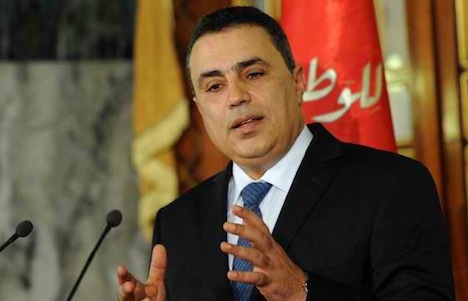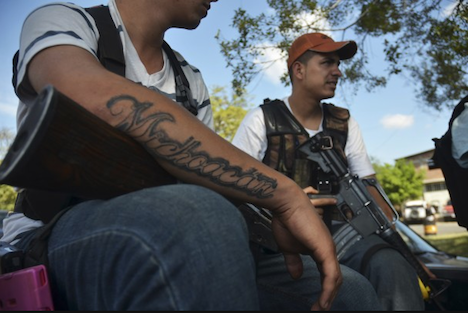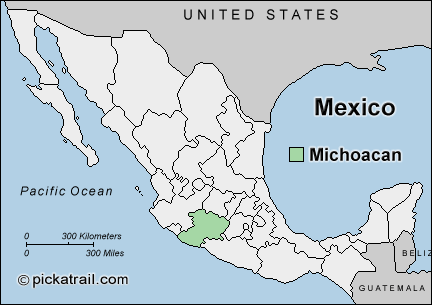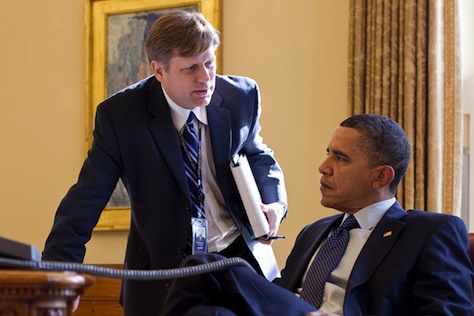
In the two countries where the Arab Spring ‘revolutions’ of early 2011 quickly toppled long-standing dictators, Tunisia has become the ‘success story’ and Egypt its ‘failure.’ Whereas Egypt is grinding through what’s now three years of fits and starts in its political development, Tunisia today seems like it’s on a stronger and more productive path to economic stability and political harmony.

First off, it’s hard to know exactly what anyone means by ‘success’ with respect to Islamic democracy, especially in the context of North African history, which has little history of democratic institutions. By the way, is the Lebanese political system a ‘success’? Is Indonesia’s? Turkey’s? Iran’s? Pakistan’s?
Moreover, the truth isn’t so easily distilled down to the mantra of ‘Tunisia good, Egypt bad,’ and it wasn’t always so clear that Tunisia would succeed where Egypt today seems to have failed. Experiments in political change in both countries continue to develop, and there’s still time for Egypt to ‘succeed’ — and for Tunisia to ‘fail.’
Tunisia, this week, marked the third anniversary since the fall of its former president, Zine El Abidine Ben Ali.
Egypt and Tunisia both enacted new constitutions in January, inviting a comparison between the two approaches to post-revolutionary politics.
In Egypt, the military-led government pushed through a more secular version of last year’s constitution with stronger protections for human rights, though it did so by controlling the Egyptian media, deploying violence to silence its critics and excluding the Muslim Brotherhood (جماعة الاخوان المسلمين) from joining the political debate. Not surprisingly, the Brotherhood boycotted the constitutional referendum, and the new constitution passed with over 98% of the vote. Last month’s vote was the third constitutional referendum in Egypt since Hosni Mubarak’s fall from office in February 2011. Egyptians also overwhelmingly endorsed constitutional reforms in March 2011 and in December 2012, the latter a hasty effort by former president Mohammed Morsi that hijacked the process from Egypt’s preexisting constituent assembly to enshrine the Brotherhood’s vision for Egypt into a new constitution.
Tunisia took a different path to constitutional reform, playing the tortoise to Egypt’s hare. It didn’t jump to an immediate referendum — and it won’t hold a popular referendum on Tunisia’s new constitution. Instead, its interim government conduction an election in October 2011 to choose a 217-member constituent assembly that late last month promulgated a constitution that’s even more progressive than Egypt’s, in line with the historically secular tradition of Tunisian governance and the moderate nature of Tunisian Islam — it protects freedom of expression and religion and provides for some of the strongest women’s rights in the Arab world.
Mehdi Jomaa (pictured above), an independent who most recently served as minister of industry, took office on January 29 to lead a caretaker, technocratic government designed to keep Tunisia on track through the planned elections later this year.
The charter won the support of secular members of the constituent assembly, but also the support of the assembly’s largest bloc, the Islamic democratic Ennahda Movement (حركة النهضة, Arabic for ‘Renaissance’). While the constitution doesn’t enshrine sharia law or even proclaim Tunisia to be an ‘Islamic state,’ it incorporates Islam as Tunisia’s state religion and states in its preamble the ‘attachment of our people to the teachings of Islam.’ That has left the constitution open to charges that it’s vague and inconsistent, especially Article 6, which attempts to provide for freedom of religion and protect against ‘offenses to the sacred’:
The State is the guardian of religion. It guarantees liberty of conscience and of belief, the free exercise of religious worship and the neutrality of the mosques and of the places of worship from all partisan instrumentalization.
The State commits itself to the dissemination of the values of moderation and tolerance and to the protection of the sacred and the prohibition of any offense thereto. It commits itself, equally, to the prohibition of, and the fight against, appeals to Takfir [charges of apostasy] and incitement to violence and hatred.
Despite the shortcomings of Tunisia’s constitution, it wasn’t always a foregone conclusion that the Ennahda Movement and Tunisian secularists would reach a compromise — Ennahda always had enough strength to kill the constitutional process if it truly wanted. By 2013, rising political violence from within the Salafist, conservative ranks of Tunisian Islamists threatened the entire venture, notably the assassinations by radical Islamists of Chokri Belaïd, the leader of the leftist, secular Democratic Patriots’ Movement, in February 2013, and of Mohamed Brahmi, the founder and leader of the socialist/Arab nationalist People’s Movement, in July 2013.
Egypt, in contrast, has now held three constitutional referenda, November 2011/January 2012 parliamentary elections that were annulled by Egypt’s top court and a May/June 2012 presidential vote that ended in Morsi’s election, his ultimate overthrow by the Egyptian army in July 2013, and a brutal crackdown against Morsi’s supporters. Egypt is expected to hold a presidential election this spring, with another parliamentary election to follow, and army chief and defense minister Abdel-Fattah El-Sisi is almost certain to run and likely to win, representing, in essence, the re-Mubarakization of Egypt.
Whereas Egypt’s 2014 elections will be its third restart at attempted representative government since Mubarak’s fall, Tunisia’s unscheduled 2014 elections follow three years of careful, if difficult, work by the constituent assembly and Tunisia’s interim government.
So what marks the key differences that explain why Tunisia and Egypt are so far apart today? Continue reading How Tunisia became the ‘success story’ of the Arab Spring →
![]()
![]()




